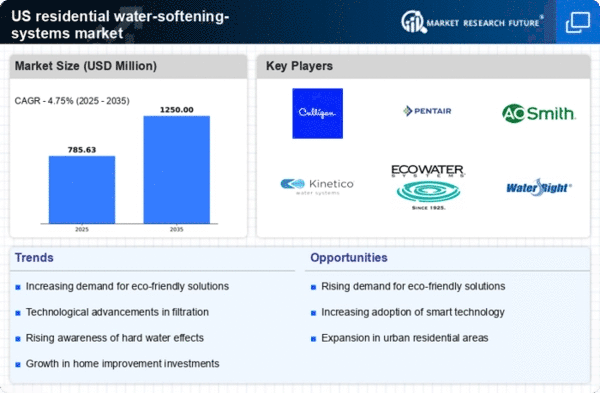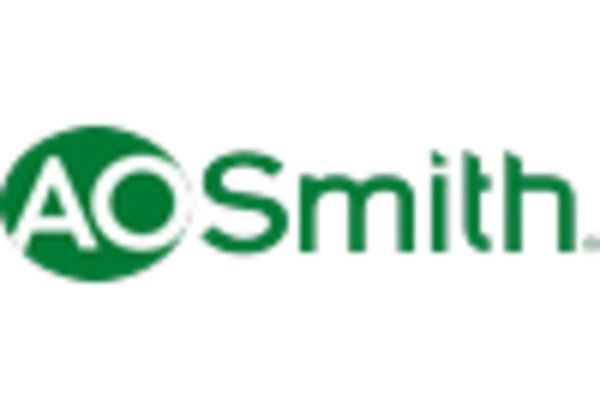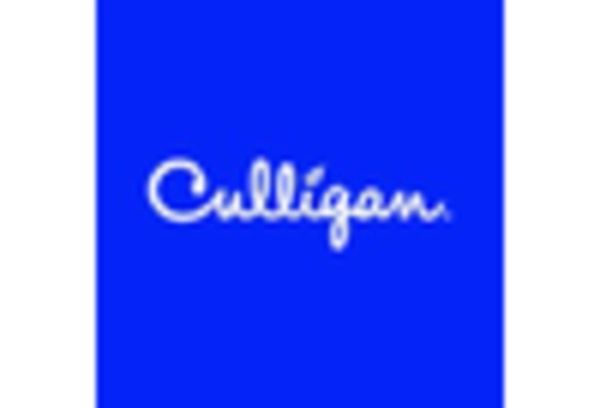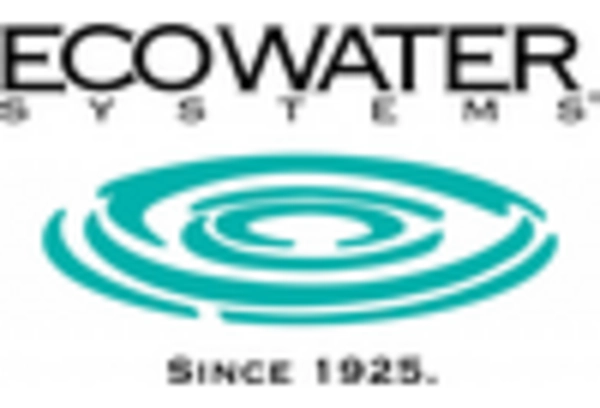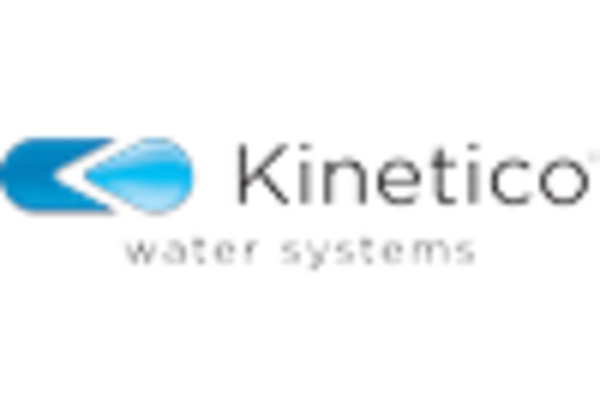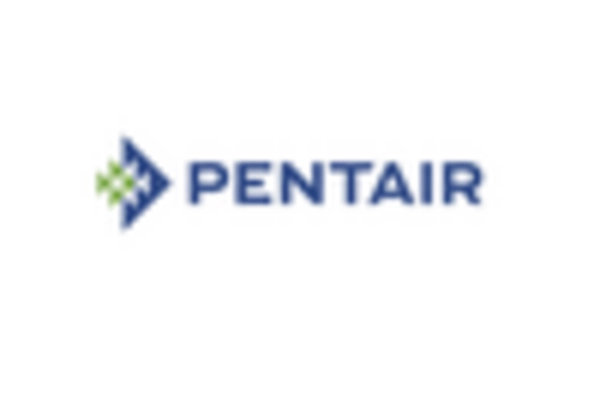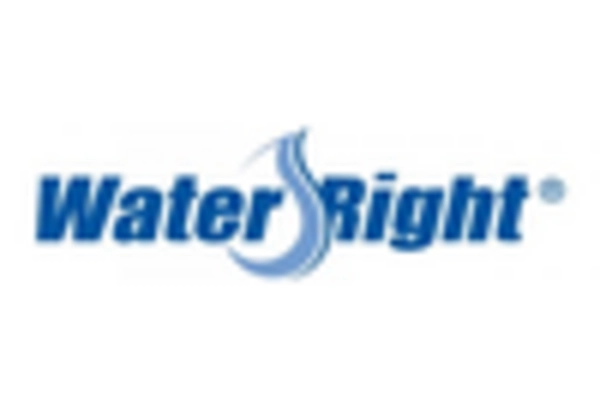Health and Wellness Trends
The rising focus on health and wellness is emerging as a significant driver for the residential water-softening-systems market. Consumers are increasingly prioritizing the quality of their water, recognizing its impact on overall health. Hard water can contain minerals that may not be ideal for consumption, leading to a growing preference for softened water. This trend is reflected in the increasing sales of water filtration and softening systems, as consumers seek to improve their drinking water quality. The residential water-softening-systems market is likely to benefit from this health-conscious shift, as more households invest in systems that promote better water quality.
Increased Appliance Longevity
The longevity of household appliances is increasingly influencing consumer decisions in the residential water-softening-systems market. Hard water can cause significant wear and tear on appliances such as dishwashers and water heaters, leading to costly repairs or replacements. By utilizing water-softening systems, homeowners can mitigate these issues, thereby extending the lifespan of their appliances. Reports indicate that softened water can enhance appliance efficiency by up to 30%, which is a compelling factor for consumers. This potential for cost savings and improved appliance performance is likely to drive the adoption of water-softening systems in residential settings.
Rising Water Quality Concerns
The increasing awareness regarding water quality is a pivotal driver for the residential water-softening-systems market. Consumers are becoming more cognizant of the adverse effects of hard water, which can lead to scale buildup in plumbing and appliances. This awareness is prompting homeowners to invest in water-softening systems to enhance the quality of their water supply. According to recent data, approximately 85% of households in the US experience hard water issues, which significantly impacts their daily lives. As a result, the demand for effective water-softening solutions is expected to rise, thereby propelling the growth of the residential water-softening-systems market.
Economic Incentives for Homeowners
Economic factors are playing a crucial role in shaping the residential water-softening-systems market. Homeowners are increasingly motivated by the potential for long-term savings associated with water-softening systems. These systems can reduce energy costs by improving the efficiency of water heaters and other appliances. Additionally, many utility companies offer rebates or incentives for installing water-softening systems, further encouraging adoption. As homeowners become more financially savvy, the appeal of these economic incentives is likely to drive growth in the residential water-softening-systems market, making it a more attractive investment for many.
Growing DIY Home Improvement Trends
The trend towards DIY home improvement projects is significantly impacting the residential water-softening-systems market. As homeowners increasingly engage in self-managed renovations and upgrades, the demand for accessible and user-friendly water-softening solutions is on the rise. Many consumers are seeking systems that are easy to install and maintain, which aligns with the growing preference for DIY projects. This trend is further supported by the availability of online resources and instructional content, making it easier for homeowners to understand and implement water-softening systems. Consequently, this shift towards DIY home improvement is likely to bolster the market for residential water-softening systems.


